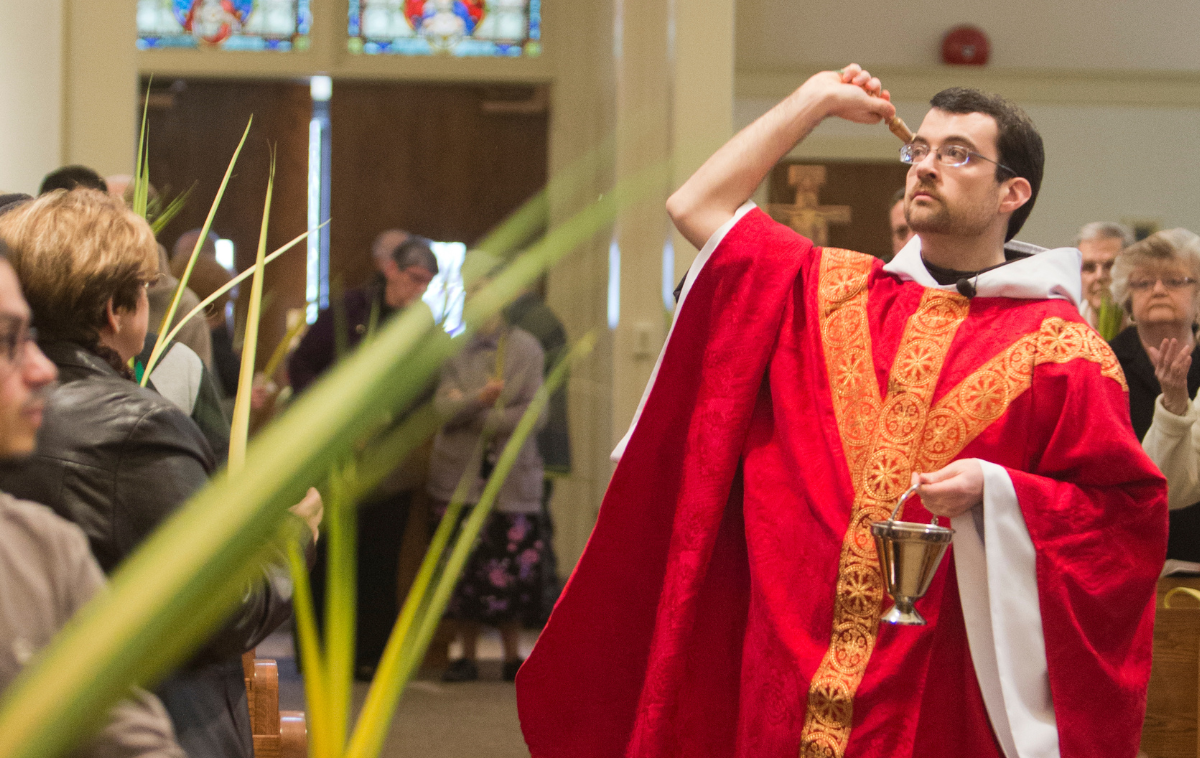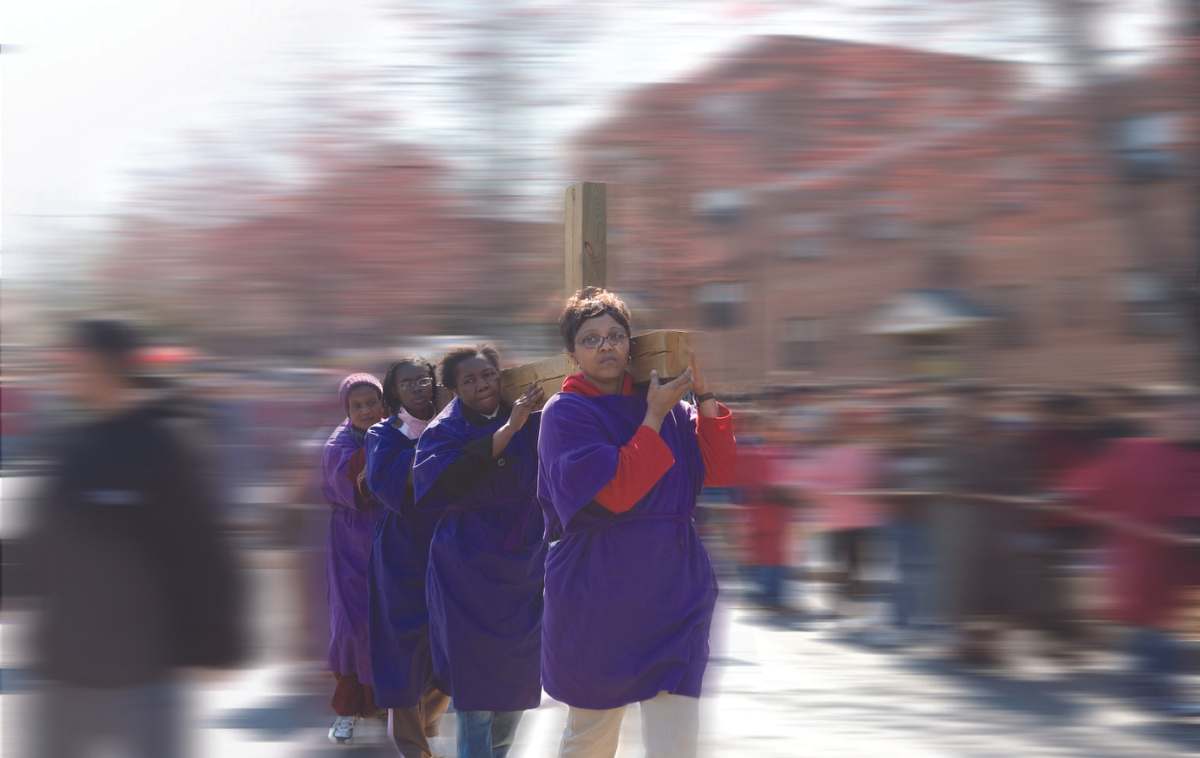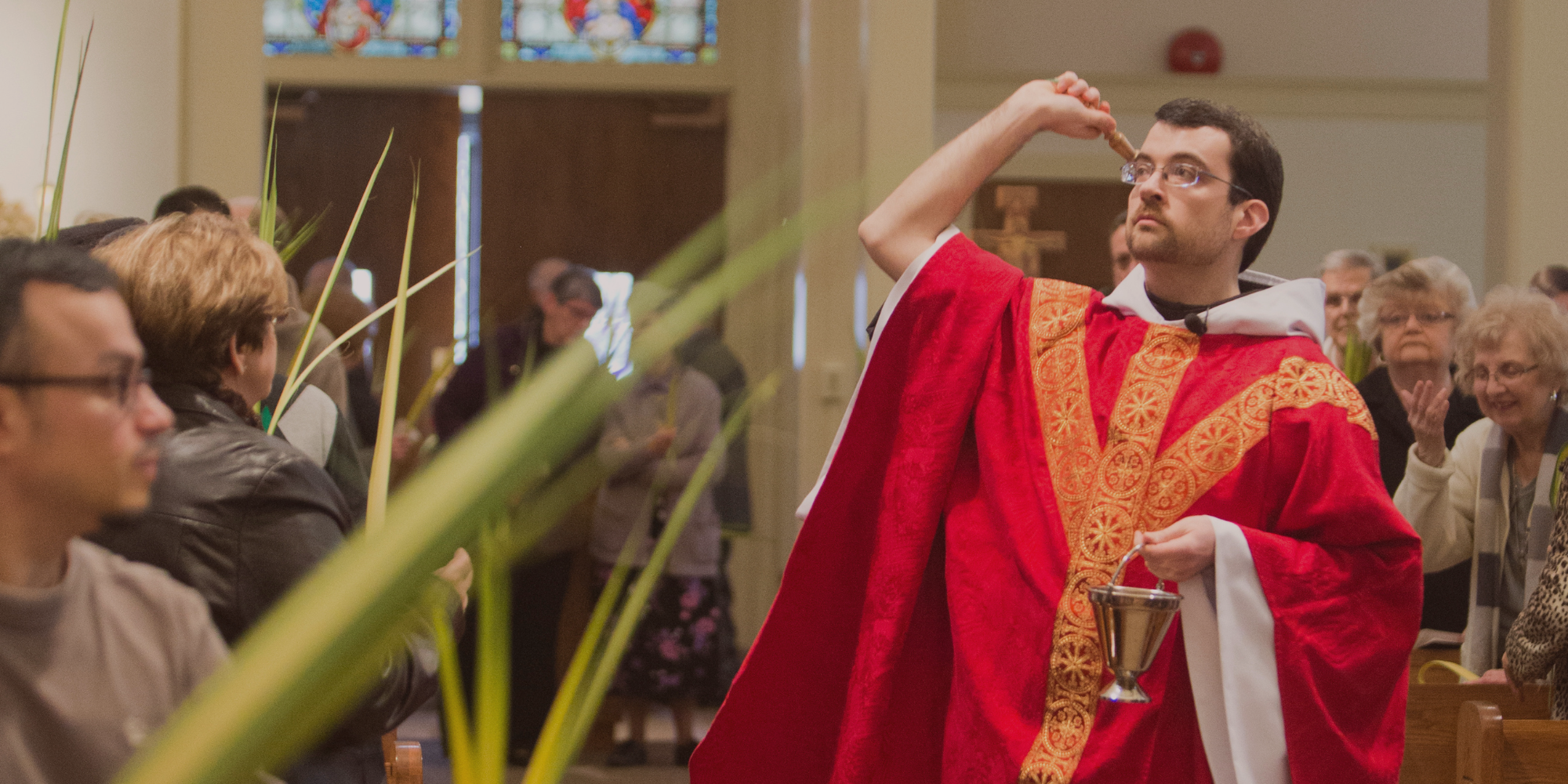What is Holy Week?
Date Published: April 08, 2025
By Eli Pacheco
Holy Week is the period before Easter, starting with Palm Sunday. It is a time Christians remember Jesus Christ’s death by crucifixion, his resurrection, and his victory over death and sin.
The five days of significance during Holy Week
A look at Holy Week’s days and what makes them important:
Palm Sunday
Christians remember Jesus’ triumphal entry into Jerusalem in observance of Passover. (Passover is a week that celebrates Israelis’ release from slavery in Egypt.) The Gospels tell us crowds welcomed Jesus by placing cloaks and palm leaves down in his path.
In Matthew 21:5, it is written that people declared Jesus as the son of David. They had waited long for the one who would fulfill Old Testament prophesies. It demonstrates Jesus’ dual existence as both the Son of God and the Son of Man.
Today, Christians celebrate this day with a procession and distribution of blessed palms.
Maundy Thursday
Maundy Thursday recognizes Jesus’ Last Supper with the disciples. During the Last Supper, Jesus established the priesthood and introduced the sacrament of Holy Communion, a cornerstone of Catholicism. On this day, Jesus washed the feet of his 12 disciples, showing them how they were to love one another just as he loved them. In modern times, priests, bishops and cardinals all over the world – including the pope – wash the feet of 12 people in observation of Jesus’ actions on the night before he died, an act of humility and service.
Maundy is a shortened version of the word “mandatum,” meaning mandate. The day is also known as Holy Thursday or Green Thursday (observers were given a green branch to recognize their completed Lenten penance.)
You might also hear it called Sheer Thursday because altars are ceremoniously cleaned on this day.
Good Friday
Good Friday is a commemoration of Jesus’ suffering and death on the cross. It is a day of fasting, repentance and sadness. It is also known as Great Friday or Sorrowful Friday.
Before the fourth century, Christians observed Christ’s Last Supper, death and resurrection the night before Easter. Today, it is celebrated the Friday before Easter Sunday. The Good Friday liturgy includes the reading of the Gospel Passion narrative and veneration of the cross. There is no Mass – communion, if offered, uses hosts consecrated on Holy Thursday.
Catholic churches have a special collection – Pro Terra Sancta – on Good Friday to support Christians working in the Holy Land, including many Franciscan friars. Pope Paul VI began the tradition in 1974 and it is observed worldwide.
Did you know...
... that all four Gospels tell the story of Holy Week?
Matthew (21-27)
Mark (11-15)
Luke (19-23)
John (12-19)

How Holy Week is determined
You might wonder why Holy Week changes dates. It begins on the last week of Lent, on Palm Sunday. Christ died around the Jewish Passover, according to the Gospel’s account of the Last Supper.
Unlike fixed dates on the Christian calendar, such as Christmas, Holy Week and all the days within it change each year. The dates are based on when Passover occurs, which is determined by the lunar calendar. Easter is the first Sunday after the paschal full moon after March 21, the calendrical spring equinox.
(The paschal full moon is the first one after the spring equinox.)
When to celebrate Holy Week and Easter has been disputed by some Christian denominations throughout time. In the Catholic Church, Easter can happen any time between March 22 and April 25.
Did you know...
... that Santa Claus played a part in when Easter is celebrated? Nicholas of Bari, bishop of Mya, attended the fourth-century Council of Nicaea, which determined when Easter is to be celebrated. He later became St. Nicholas.

Fasting during Holy Week
Catholics are discouraged from eating meat on Holy Thursday and Good Friday. Early Christians would eat meat on Easter Sunday in celebration of Christ’s resurrection. Some observers abstain from meat all week, but there is no official rule on the matter.
Those who do not eat meat for the week often do so in honor of the sacrifice Jesus made for all creation. During this time, other foods suffice, such as:
Bread
Fish (and other seafood)
Fruit
Grain
Vegetables
Butter, eggs and milk are also fine to consume. Over the years, Catholics worldwide have embraced meatless dishes as part of their Holy Week tradition.
Did you know...
... that some bishops make concessions to those who cannot abstain from meat because of economic reasons? Those in this situation are urged to make up for that in other ways, such as:
Giving up specially liked foods
Conducting special work of charity or mercy
Making another significant sacrifice
Holy Week and Ramadan
Ramadan bears a few similarities to Holy Week. Here is a comparison:
Ramadan
Fasting is central to Ramadan, a month in which Muslims observe their holy book, The Qur’an. Fasting is mostly mandatory, with special rules for how and when to fast, from dawn until nightfall.
Holy Week
Christians also fast during Lent, but not universally. The Bible does not include instructions for fasting, although Christ’s 40 days (about one and a half months) in the wilderness of fasting and repelling temptation is marked by fasting.
Did you know...
... that both Ramadan and Lent end in celebrations? For Ramadan, it is Eid al-Fitr, the Festival of Fast Breaking. Lent ends with Easter, a festival of Jesus Christ’s resurrection.
Frequently asked questions
Is Holy Week a holiday?
Holy Week is not a holiday that is recognized by the U.S. Government. Christmas Day is the only Christian holy day given holiday status. Within the Church, however, these holy days are considered holidays.
Where is Holy Week celebrated?
Holy Week is celebrated anywhere Christians are. As Jesus said, “For where two or three are gathered together in my name, I am there in the midst of them.” (Matthew 18:19-20)
Who celebrates Holy Week?
Christians celebrate Holy Week. The week between Palm Sunday and Easter is a solemn period of devotion to Jesus Christ’s crucifixion and resurrection. It is Christianity’s holiest week of the liturgical calendar.
Did you know...
... that it was named Holy Week in the fourth century? St. Athanasius, bishop of Alexandria, and St. Epiphanius of Constantia were responsible for that.
Can you eat meat the day before Easter?
The Church encourages Catholics to continue their Good Friday fast until the Easter Vigil (on Holy Saturday) evening. The paschal fast, done in honor of Jesus’ suffering and death, prepares us to celebrate his Resurrection.
The Easter Vigil begins after sunset on Holy Saturday. Some parishes celebrate Mass that evening or at midnight.
Does Holy Week have classes?
Holy Week does not have classes. However, many churches have programs leading up to Holy Week to help participants understand its significance. We hope this post has provided some insight into what it is all about.

